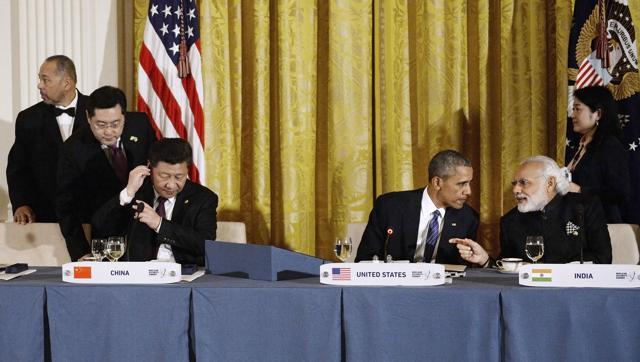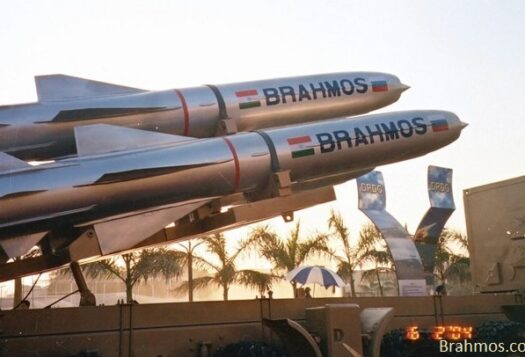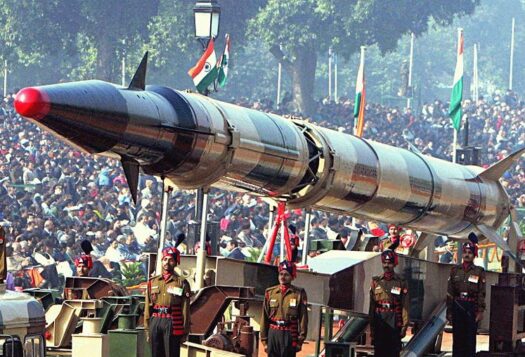
India Lost the Battle, But May Win the War for NSG
By Reshmi Kazi
That India did not win a Nuclear Supplier Group (NSG) seat during the 2016 NSG plenary is an understatement. It’s more appropriate to say that India encountered certain hurdles in this round of the plenary. However, the aspirations for India’s NSG admission are far from being shelved. A recent interview with Ambassador Rafael Grossi—recently appointed the “Facilitator of the Chairperson to having informal consultations with the Participating Governments (PGs) in the group”—indicates that despite China’s truculence and India’s stated position on the discriminatory Nonproliferation Treaty (NPT), several NSG participating governments are keen to reconsider the “non-discriminatory admission” of non-NPT applicants. Among these applicants (e.g., India and Pakistan), India’s case merits high. This is a significant development indicating that the NSG has taken up India’s application. In other words, the process has begun.
Have there been loses? Yes. China has lost and shared its loses with Pakistan. Although China achieved a tactical win by blocking India’s entry into the NSG, this victory might not be sustainable in the long run. The NSG participating states have expressed a desire to reconsider the admission of non-NPT states in a non-discriminatory manner. India’s nonproliferation credentials—irrespective of being a non-NPT member—are much higher than Pakistan’s. Hence, if China continues to block India’s application, it will portray Beijing as having a fundamental conflict of interest with the other 47 participating states to the NSG. It will place China in an uncomfortable position of being not like-minded with other members of the NSG.
China’s support for Pakistan’s NSG admission also highlighted the poor nonproliferation record of China and Pakistan. Under the Nuclear Proliferation Prevention Act (NPPA) provisions, U.S. sanctions on AQ Khan and his network imposed in 2009 are still active and in force today. These sanctions will cease to exist only if the U.S. president—on the basis of satisfactory evidence—certifies that the AQ Khan nuclear black-market has ceased its proliferation-related activities. This has not happened thus far. Meanwhile, according to a recent report, Pakistan continues to supply restricted items such as Monel and Inconel material to North Korea in violation of the UN sanctions.
The NSG discussion also outlined how China has been a violator of NSG objectives. Sino-Pakistan nuclear cooperation is in complete violation of NSG objectives. This outlines China’s propensity to undermine the efficacy of the elite nuclear export control group merely with the petty intention to contain India. China appears weaker as a result, and less capable of contributing to world peace and prosperity.
Pakistan’s poor performance at the plenary meeting to argue its case for NSG shows that its diplomatic strategy is ill-equipped. Pakistan’s NSG application is dependent on China piggy-backing onto it and simultaneously playing the India card. This modus operandi will leave Pakistan more isolated and a pawn in China’s balance of power game against India and the United States.
India’s Pain, Nonproliferation’s Gain
By Muhammad Umar
The decision not to admit India as a member to the Nuclear Suppliers Group (NSG) had no real impact on India’s ambitions for its civil nuclear program. India already enjoys an exemption from key NSG rules and engages in global nuclear commerce. But by stressing the importance of the Nuclear Nonproliferation Treaty as an essential requirement for NSG membership, the group reaffirmed its commitment to nonproliferation, strengthening the regime. The decision proved that the NSG is unwilling to compromise on its basic principles—a welcome declaration for nonproliferation advocates.
The NSG has provided an incentive to India to deliver on its previous commitments made to the Bush administration in exchange for the U.S.-India 2008 Civil Nuclear Agreement. India must prove that it is a responsible nuclear state by separating its civil and military nuclear facilities, bringing all civil facilities under International Atomic Energy Agency safeguards, committing to the Comprehensive Test Ban Treaty (CTBT), taking steps to reduce its weapons stockpile, and stopping all production of weapons-grade fissile material.
It is clear that India is interested in becoming a member of the NSG, and as an advanced nuclear technology state, it should. NSG member states understand that a criteria-based approach must be developed to address potential future NSG membership for states outside of the NPT.
A consistent, criteria-based approach is much better than making exceptions for individual states. It lessens the chance of unjust discrimination, enabling any state that meets the criteria laid out by the NSG to be welcomed into the group. According to Pakistan’s Adviser to the Prime Minister on Foreign Affairs, Sartaj Aziz, “If the group forms such a uniform criteria (sic), then Pakistan has stronger credentials for NSG membership than India.”
The NSG set an excellent precedent for global nuclear norms by denying India membership. Despite pressure from the Obama administration, the group chose to remain true to its principles, which at the end of the day is a colossal victory for the nonproliferation regime.
India Broke Even at the NSG
By Jayita Sarkar
India won and India lost at the NSG plenary session. The fact that Indian membership was even considered at the plenary session is a win because it was unthinkable the mid-1970s—when the group was formed—as well as in 2008— when the group granted India a waiver to engage in civilian nuclear trade. Despite murmurs of a possible civilian nuclear agreement between Washington and Islamabad (and interest in such an agreement in some quarters in Tel Aviv), no other nuclear-armed state outside the NPT has reached this level of inclusion. Moreover, India’s recent full membership in the Missile Technology Control Regime (MTCR), of which China is not a part, demonstrates that New Delhi is slowly but surely receiving greater acceptance in the export-control regimes despite being an NPT-outlier. As a result, given India’s strained relationship with the nonproliferation regime, it was a win—and it will be remembered in history as a milestone in India’s international diplomacy and the evolution of the regime.
India also lost at the NSG plenary. First, it was a tactical failure on New Delhi’s part for not cultivating support from the NPT-hardliners like Austria, Switzerland, Ireland, and others. Moreover, American support from the Obama administration was less robust at the NSG plenary session than it was during the Bush administration in 2008. This brings us to the second failure—a failed civilian nuclear energy renaissance despite the hopes generated since 2005. Eight years after signing the U.S.-India 123 agreement (i.e., the legal framework for the United States to engage in civil nuclear cooperation with India), the American nuclear industry has not made inroads. Although French and Russian companies have concluded agreements with India, no reactor construction projects have broken ground. As a result, the economic argument of India’s inclusion into the NSG fell short of being credible. This may have caused—among other factors—the withering U.S. diplomatic support for India’s NSG membership this time. That China opposed India’s membership was well-known, and should not have been a surprise.
There is not always a clear winner or loser in international politics since actions, issues, and goals are closely interconnected. India’s MTCR membership offsets the impact of the outcome of the NSG plenary session to both the domestic and international audience. It also demonstrates that while nuclear commerce between the United States has not delivered, defense relations have and will continue to evolve in a positive direction.
China, Pakistan Won on Principle
By Hamzah Rifaat Hussain
The plenary session of the Nuclear Suppliers Group resulted in plenty of gains and losses for states across the board. The most obvious winner was China which aligned its foreign policy principles with a commitment to nonproliferation by dismissing India’s bid for NSG membership. China’s argument centered on how the inclusion of a non-NPT state into the NSG would weaken the NPT regime—a sentiment that other states echoed.
To be fair, the outcome of the plenary session was clearly in China’s favor as it cited moral legitimacy to dismiss India’s proposal. Its argument is buttressed by the fact that for decades, NSG members had to be NPT signatories, and India’s exception to the rule would be in violation of that principle, weakening the nonproliferation order. By quoting precedents and NSG requirements, China not only established itself as the de facto winner of the deliberations in South Korea, but also reaffirmed its status as a great power with diplomatic clout while simultaneously earning the ire of some states and the respect of others.
Yet the results of the plenary session also highlight how alliances, global dynamics, and realism in international relations were at play. China’s morally legitimate claims and dismissal of India’s application has inevitably benefited one state which relies on nuclear deterrence to ward off conventional imbalances tilted in favor of India. That state is Pakistan, which has time and time again echoed how the nonproliferation regime—which includes the CTBT, NPT and the FMCT—needs to be more inclusive, less discriminatory, and based upon strategic parity. Considering Indian membership as a zero-sum game, the close relationship between China and Pakistan helped it considerably. Indian membership in the NSG would have entailed dire consequences for Pakistan’s national interests, in the form of an Indian veto on exports of nuclear materials, equipment, and technology. It also provides much needed relief to Islamabad given that the Indo-U.S. Civil Nuclear Agreement in 2008 and close bilateral ties between Delhi and Washington did not translate into NSG membership for its adversary, and India’s rejection was based upon it not being an NPT signatory.
Pakistani satisfaction and Indian disappointment aside, other states such as Austria and Ireland managed to garner considerable diplomatic goodwill from the deliberations by reaffirming their commitments to nonproliferation and citing principles agreed upon for decades. For India and its sympathizers, however, the proceedings resulted in utter disappointment, especially for those who continue to believe that civil-nuclear agreements can translate into NSG membership for a non-NPT state. The truth is that the United States, which was trying to further its policy of containing China through India, had inevitably confronted China itself, which cited principles and fair play to the delight of many—and most especially Pakistan.
***
Image: Olivier Douliery-AFP, Getty


